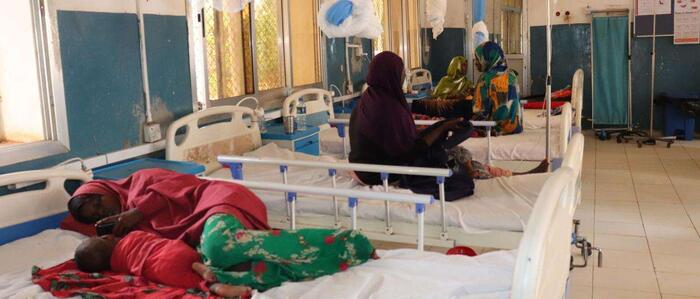
People living in Somalia and Somaliland are facing one of the worst droughts in decades after four consecutive poor rainy seasons. Failing crops and rising food prices, combined with ongoing insecurity and a massive invasion of locusts that swept across the Horn of Africa, have forced hundreds of thousands of people to move from rural areas to urban centers. They leave their homes with the hope of finding food, clean water, shelter, and health care. Many have sought refuge in camps for internally displaced people, yet these sites often have a lack of toilets, hand washing stations, and clean drinking water.
At the Doctors Without Borders/Médecins Sans Frontières (MSF) projects in Baidoa, Mudug, Jubaland, Hargeisa, and Las Anod, patients tell us that they need humanitarian assistance to survive. Many people describe their challenging journeys in search of help, with some walking for weeks, and losing family members while on the move.
“For 20 days we walked while carrying our children,” said a 75-year-old man who recently arrived at a camp in the Lower Juba region with his extended family. “We did not have a donkey to carry our children, so it took us 20 days to reach here. Our donkeys died because of the drought, and we had no money for a car. We came to Lower Juba because we heard that families who lost their livestock could get assistance.”
Source: MSF







